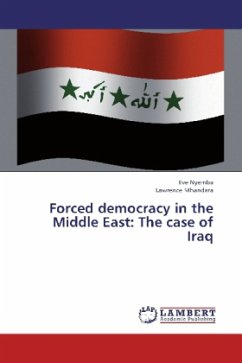
Ethnosectarian Conflict and Power-Sharing Democracy in Iraq
The failture of building stable democracy in Iraq after 2003
Versandkostenfrei!
Versandfertig in 6-10 Tagen
55,99 €
inkl. MwSt.

PAYBACK Punkte
28 °P sammeln!
Since the regime was brought down by coalition forces in 2003, Iraq has been undergoing the process of democratisation through some significant political changes, namely, relatively free and competitive elections, and the freedom to form political and civil organisations. However, it faced crucial challenges that undermined this process such as ethno-sectarian violence/conflict, rule of law, the existence of militias and lack of elite coalescence. This book examines the impact of ethnic and sectarian conflict on the failure of the power sharing democracy. It covers the period from 2003 until A...
Since the regime was brought down by coalition forces in 2003, Iraq has been undergoing the process of democratisation through some significant political changes, namely, relatively free and competitive elections, and the freedom to form political and civil organisations. However, it faced crucial challenges that undermined this process such as ethno-sectarian violence/conflict, rule of law, the existence of militias and lack of elite coalescence. This book examines the impact of ethnic and sectarian conflict on the failure of the power sharing democracy. It covers the period from 2003 until April 2014. The main themes focused on are societal security/ethnic and sectarian violence, inclusion, proportionality, and power devolution/federalism. For the purposes of this study, the societal security dilemma (SSD) theory, which focuses mainly on the roles of elites and external actors in societies that experience a power vacuum or institutional collapse in divided societies, is adopted.












